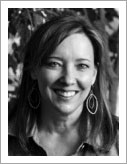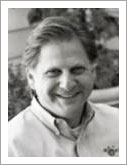Tutorials & Workshops
Jean Tabaka: Applying a Systems perspective for Organizations through Visioning and Learning Models
 Truly innovative, learning organizations require new ways of creating and sharing knowledge. In this session, Jean shares personal experiences and exercises in visioning & learning models. Each model targets a particular part of knowledge creation. For the organizational level, we look at PDCA coupled with Pascal Dennis’s True North & Mother Strategies. For team learning, we work with ORID retrospectives. Finally, Peter Senge’s personal visioning helps us dig into our own work within any organization’s growth-oriented context, Agile or not. This regular cadence of visioning and learning truly sustains Enterprise learning.
Truly innovative, learning organizations require new ways of creating and sharing knowledge. In this session, Jean shares personal experiences and exercises in visioning & learning models. Each model targets a particular part of knowledge creation. For the organizational level, we look at PDCA coupled with Pascal Dennis’s True North & Mother Strategies. For team learning, we work with ORID retrospectives. Finally, Peter Senge’s personal visioning helps us dig into our own work within any organization’s growth-oriented context, Agile or not. This regular cadence of visioning and learning truly sustains Enterprise learning.
About: Jean Tabaka, Agile Fellow with Rally Software, is continuing on her 30 year path of learning about software development principles, processes, and practices for people. She seeks a humane approach to bringing high value to our communities of creators and consumers. This has led her to move into Kanban and Lean approaches as well as systems thinking and complexity theory that reach beyond traditional Agile software frameworks. Jean holds a Masters in Computer Science from Johns Hopkins University. She is the author of “Collaboration Explained” and a variety of articles on Agile, organizational change, team dynamics, systems thinking, Lean thinking, and other associated topics. Jean blogs at www.rallydev.com/agileblog, posts on pm.stackexchange.com and can be followed on twitter as @jeantabaka. When home in Boulder, CO, she’d invite you over for some wine and some music while gazing across her backyard over a Flat Iron Mountains sunset. Meanwhile, you can find her at jean.tabaka@rallydev.com.
Alan Shalloway: Using Lean Flow to Achieve Agility at Scale
Many organizations have had initial success with Agile methods only to find that their pilots’ success could not be maintained. This has led many to believe that scaling agile is hard. However, it may be that while pilot projects assist teams in being better they do not always address the real problem the organization is facing. This talk discusses the difference between a bottom-up approach of scaling agility and using lean principles to guide agile transitions – what we at Net Objectives call Lean-Agile Transitions. We will discuss the need for transforming the leadership, management, team processes and technical processes in a coordinated manner so that the entire value stream of software development can be improved.
Learn why it is possible to greatly reduce the amount of collaboration needed between teams by creating the proper team organizations and managing their backlogs holistically. How to coordinate multiple business stakeholders with multiple development teams will also be discussed.
In addition to exploring the latest approaches to large scale Agile, where to start a Lean-Agile transition will also be discussed, including the issue of when to use Kanban instead of more traditional methods. Learn why starting agile at a team level without considering the entire value stream may actually impair your ability to scale agile to the enterprise. The need for creating a big picture view within which any local implementation is done (e.g., pilot projects) will also be discussed.
Several case studies providing examples of all of these issues will be presented.
Alan Shalloway is the founder and CEO of Net Objectives. With over 40 years of experience, Alan is an industry thought leader in Lean, Kanban, product portfolio management, Scrum and agile design. He helps companies transition to Lean and Agile methods enterprise-wide as well teaches courses in these areas. Alan has developed training and coaching methods for Lean-Agile that have helped Net Objectives’ clients achieve long-term, sustainable productivity gains. He is a popular speaker at prestigious conferences worldwide. He is the primary author of Design Patterns Explained: A New Perspective on Object-Oriented Design, Lean-Agile Pocket Guide for Scrum Teams, Lean-Agile Software Development: Achieving Enterprise Agility and is currently writing Essential Skills for the Agile Developer. Alan has worked in literally dozens of industries over his career. He is a co-founder and board member for the Lean Software and Systems Consortium. He has a Masters in Computer Science from M.I.T. as well as a Masters in Mathematics from Emory University. You can follow Alan on twitter @alshalloway.
Frode L. Odegard: Lean Transformation in the Software Industry: The Big Picture
 Lean practitioners in the software industry have thus far been focused mostly on using Lean tools to help product development teams become more effective. But Lean is a methodology to help the whole organization learn and execute better, not just one team or department! In this executive-level workshop we will discuss how leaders can orchestrate company-wide Lean transformations and create more value for customers, shareholders, and employees as a result. The workshop is based on Lean Software Institute’s unique real-world experience working with senior leaders in a wide range of companies over the last seven years. This workshop is aimed at senior management and attendance is limited to ensure a quality experience for all participants. Please register in advance.
Lean practitioners in the software industry have thus far been focused mostly on using Lean tools to help product development teams become more effective. But Lean is a methodology to help the whole organization learn and execute better, not just one team or department! In this executive-level workshop we will discuss how leaders can orchestrate company-wide Lean transformations and create more value for customers, shareholders, and employees as a result. The workshop is based on Lean Software Institute’s unique real-world experience working with senior leaders in a wide range of companies over the last seven years. This workshop is aimed at senior management and attendance is limited to ensure a quality experience for all participants. Please register in advance.
Topics addressed will include:
- Software Industry Trends and Challenges
- How Lean Thinking is influencing the Software Industry
- The Unfulfilled Promise of Lean in the Software Industry
- What Could Be: Software Companies as Learning Organizations
- Obstacles you will face on your Lean Journey
- Lean as an Operating System (Beyond Value Streams and Kanban: A 5D Systems View)
- Lean as an Organizational Learning System (Mobilizing for Innovation and Performance)
- Lean as a People System (Coaching for Growth, Autonomy, and Meaning)
- Where to Begin (Relating Lean to Your Business Model and Organizational Lifecycle Stage)
- Architecting Lean Transformations (Leadership, Governance, Change Capacity, Financials)
- Developing Lean Leaders: The Inner Voyage
- Benchmarking: You vs. the Competition
About: Frode has more than twenty years of experience as an entrepreneur and trusted advisor to high-tech executives. Organizations he has helped include Sony Electronics Inc., Lockheed Martin, Honeywell Aerospace, and Plantronics. Frode is currently writing a book on Lean transformations for software executives.
Before founding the Lean Software Institute in 2004, Frode was the CEO and founder of Odegard Labs, Inc., a for-profit software engineering research lab and consulting firm. Prior to founding Odegard Labs in 1991, Frode was the CEO and founder of Modula-2 CASE Systems A/S, a Norwegian company building next-generation tools for embedded software developers. In 2010, Frode also founded a global incubator for new startups, Odegard adVentures. His interests outside work include history, philosophy, psychology, theoretical computer science, travel, linguistics, and strength training. You can follow Frode on Twitter @odegard
Rolf Häsänen & Håkan Forss: LESS Game Day
During the LESS game day we will play two games: MIT Beer Game and the getKanban Board Game. We are limited to 24 active players for each game. We will play the MIT Beer Game between 09:00-12:00 and the getKanban Board Game 13-16
The game MIT Beer Game is a simulation game of system dynamics. It was introduced in the 60’s by MIT’s Sloan School of Management and further popularized by John Sterman and Peter Senge. The goal of the game is to optimize a supply chain in several stages to meet customer demand while minimizing logistics and warehousing costs.
This game session will be led by Rolf Häsänen from EPL Business Institute. Session is limited to 24 active game players
The getKanban Board Game is a physical board game designed to teach the concepts and mechanics of Kanban for software development in a class or workshop setting. It has been described as the most effective way to teach Kanban. It’s hands-on, engaging, and fun. The getKanban Board Game is frequently used in Kanban training classes around the world.
This game session will be led by Håkan Forss from Avega Group. Session is limited to 24 active game players.

